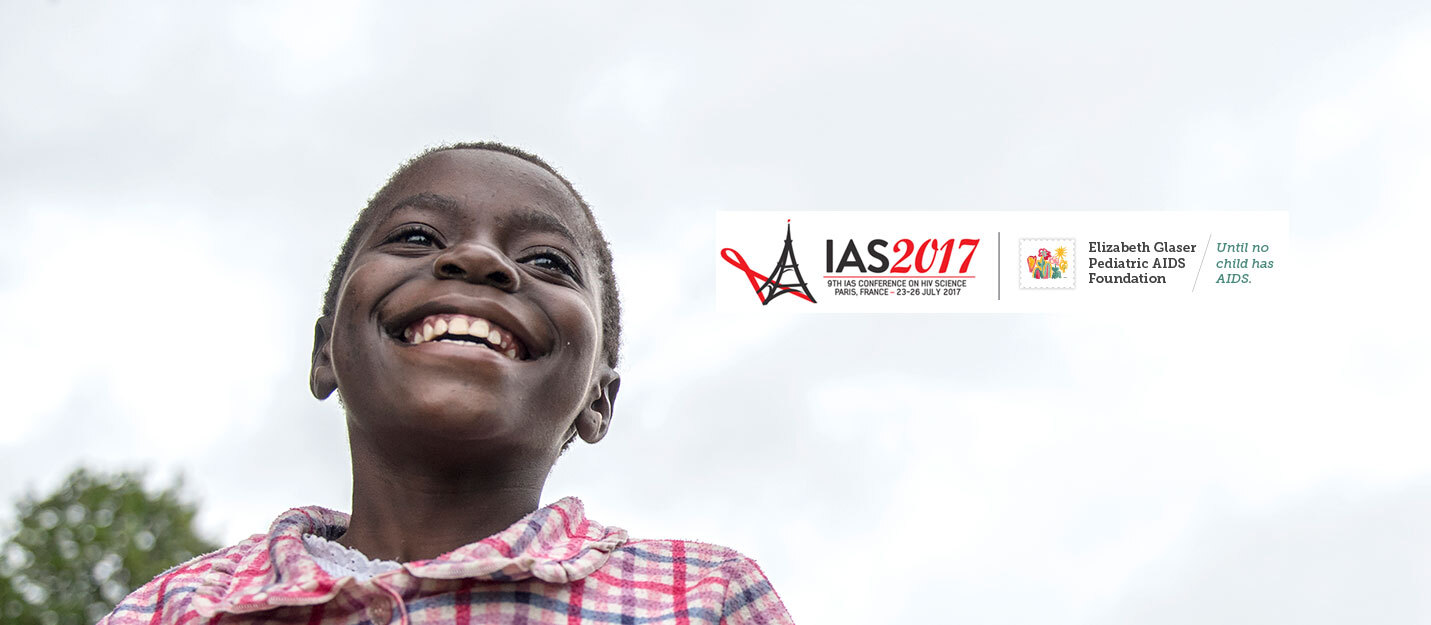The Ninth International AIDS Society (IAS) Conference on HIV Science (IAS 2017) will be held 23-26 July 2017 at the Palais des Congrès in Paris, France. This biennial gathering is the largest open scientific conference on HIV and AIDS related issues – bringing together a broad cross-section of more than 6,000 professionals from around the world to meet and examine the latest scientific developments in HIV-related research with a focus on moving science into practice and policy.
The Elizabeth Glaser Pediatric AIDS Foundation (EGPAF) will be in attendance to share and learn at this event. EGPAF has been awarded the honor of three oral and 10 poster presentations (please see below, and feel free to click on the title of each to read our full abstracts). We will be hosting two satellite sessions at IAS 2017; one focusing on delivering uninterrupted services to adolescents and young adults and one on point-of-care early infant testing in resource-limited settings (please see below information on when and where these will be held). Please visit us at any and all of these presentations and events. We also invite you to stop by our booth in the exhibition center to learn more about our work in 6,000 sites across 19 countries.

